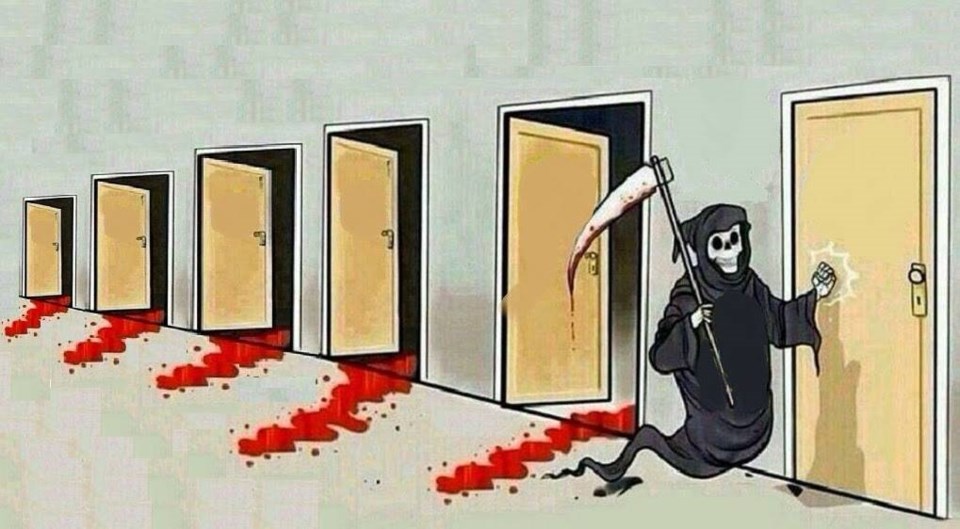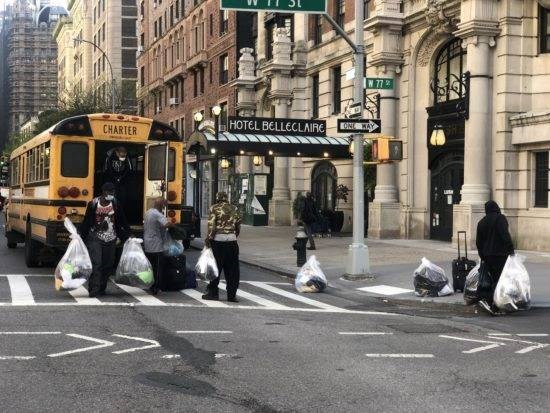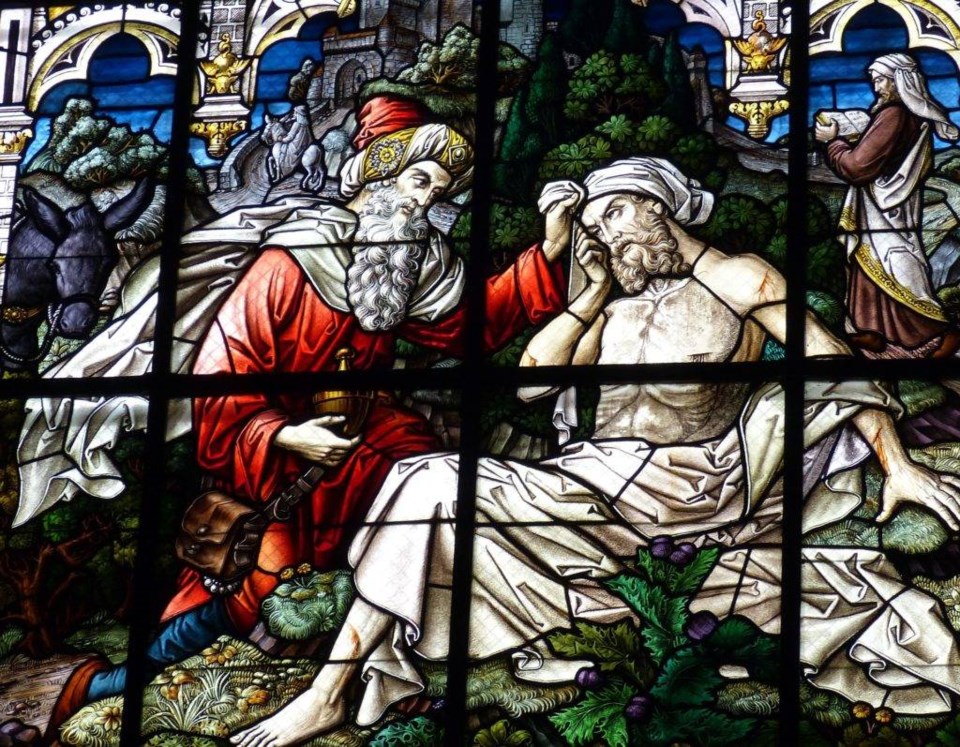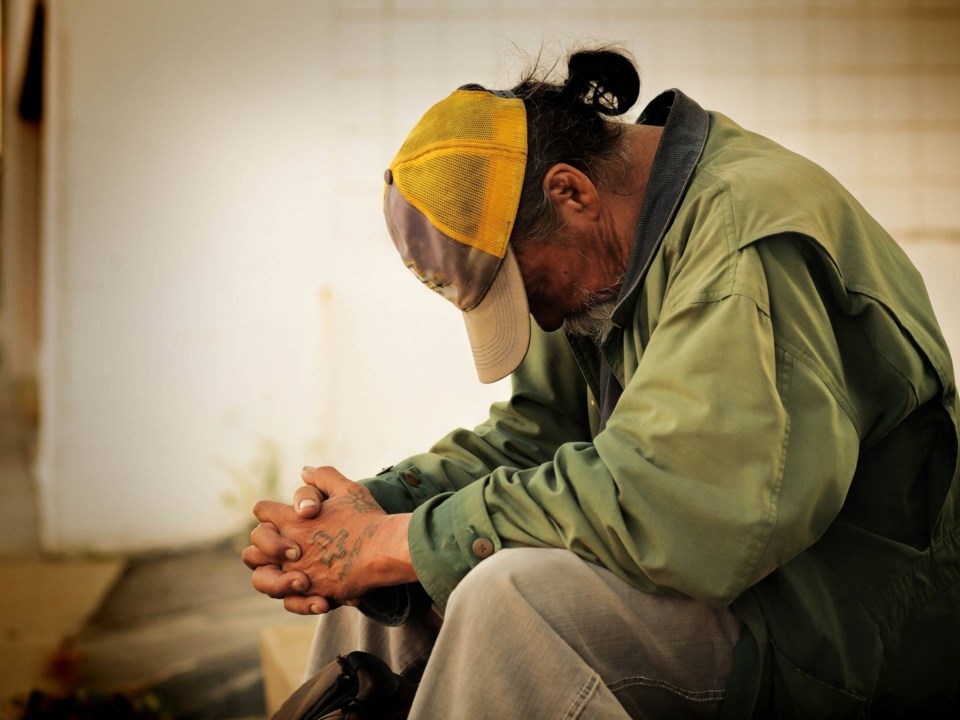By Michael Milton "The Art of Seeing"
"City on fire!
Rats in the streets
And the lunatics yelling at the moon
It's the end of the world! Yes!
City on Fire!"
Stephen Sondheim, Sweeney Todd
Mid-April of this year and it is 2:00am. There is a loud rap on the front door of my apartment, my home of four decades.
"Room check!" a man barks. I eye him through the peep hole. I've never seen him before. He is wearing a uniform and holds a clipboard. He knocks again. "Room check!!" he repeats, a bit more aggressively. "Open up!"
I crack the door an inch.
"Is everyone here?" he demands.
Bewildered, I have no idea how to answer. He glances at his clipboard and then back up at me. "Is everyone in bed?"
My throat tight, I rasp out, "I I don't understand. I live here."
Hours later I figured it out. Life at the Hotel Belleclaire on Broadway at West 77th had been, without warning and with lightning speed, drastically altered.
And with that realization, I felt the coronavirus had, finally, arrived at my front door.

Until that early morning intrusion, my day to day New York existence had been hardly touched through the first weeks of the pandemic.
I have a little cushion of money saved. I have an affordable apartment within the hotel. I have health insurance. I have a partner with whom I can sit down for dinner each night, less than six feet apart. I have books to read and HBO series to enjoy. I already worked remotely.
I even continued to go to the gym. When New York City was crowned the world's epicenter for the virus, the hotel part of the Belleclaire ceased to function and voila! A private work-out area for me.
Downstairs, the heavy front doors were locked, chained, and the ground-floor windows covered with brown butcher-block paper. Those few of us with apartments here were given pass keys for a side entrance. I padded alone through the vast, quiet lobby to pick up my mail. I allowed my cat to freely roam the empty halls. The hotel crew remaining continued to take good care of us.

Photo: www.eaglesflight.com
(Perhaps I ought to have considered the fate of Prince Prospero in Edgar Alan Poe's "Masque of the Red Death" before becoming quite so comfortable in my isolation.)
Friends would call; they struggled with loneliness. They feared next month's rent, taxes, their grocery bills. They worried about their jobs, their kids, their kid's grandparents, all the while managing the omnipresent possibility of contracting the virus themselves.
I listened. I nodded. I commiserated. I was available to them yet I felt separate.
I have always considered myself to be a generous person. A compassionate person. I meditate. I pray. In my own small ways, I work to advance the visibility and viability of various social causes. "A New York liberal," more conservative friends call me, these days with a faint trace of rancor.
However, in the early morning hours after the visit from that guard, I finally pieced together the empty hotel rooms were to be occupied by an overflow from New York City homeless shelters, hotbeds in the transmission of the virus.
That generous vision of myself was sorely tested.
"There had been signs something was afoot at the Belleclaire. Two days before, a large crew of workmen had built false walls of plywood to protect the dark, richly grained wood paneling of the lobby."
There had been signs something was afoot at the Belleclaire. Two days before, a large crew of workmen had built false walls of plywood to protect the dark, richly grained wood paneling of the lobby. Hundreds of mini-microwaves and refrigerators were delivered and distributed. Make-shift tables were set up which would ultimately be used by representatives of the NYC Department of Health and Human Services.
Of course I asked questions. They all went unanswered.
Even when the long line of people formed outside the elegant Art Nouveau bent wood and glass doors—many with their belongings in large plastic garbage bags—I was unclear (and still am) as to the details and extent of the change here. This blindness on my part may seem a bit naïve but remember; the city was shut-down. I seldom left the apartment. I saw the changes in fast-passing glimpses, returning to my home to piece together what they signified.

Photo: Michael Milton
As the first week of the transition wore on, there were other alterations; a corner of the lobby became home for plastic racks filled with bananas, ham and cheese sandwiches, milk and cereal. More guards arrived, assigned to patrol each floor. Downstairs, new arrivals were scanned with hand-held metal detectors. Maintaining safety protocols seemed to be near impossible.
Some of the tenants roamed the halls in pajamas, super short shorts or low-riding baggy jeans, shouting up stairwells to communicate with acquaintances on other floors. The halls echoed with music from various boom boxes. Impromptu dancing sprang up in the area where doormen used to store luggage for other newly-arrived guests.
I love this building. It has served as a storied backdrop for the most important events of my life. I have grown up right alongside it. In fact, I wrote about my home and the building's 21st century come-back. (See: New York Times, The Hotel Belleclaire, Dowager on the Rise.)
Now change again was upon us.
And I hated it.
The home into which I have welcomed friends and visitors had tumbled back decades in time and memory, abruptly resembling aspects of its former nineteen-eighty's-SRO-self. The hotel didn't seem able to escape the unsavory parts of its past.
Can any of us?
I was filled with a rage linked to a sense of entitlement I was practically unaware I possessed.
Where was my liberality now? My compassion? My generosity? I called my council woman and then my lawyer. I was now the aggrieved one calling friends, spilling out my fears, filled with unanswerable questions and a sense of an injustice delivered upon me I couldn't quite put my finger on.
"I was filled with a rage linked to a sense of entitlement I was practically unaware I possessed."
Meditation, deep breathing and my favorite New Age quote-ables helped. After a few days, I gradually regained my equilibrium. And when I reached a somewhat calmer state of mind, a sangha friend gently reminded me of the thoughts of Buddha; impermanence is the very nature of life. Change is just another word for living. And if you want to live a happy life, accept that.
And practice compassion.
I also recalled something Viktor Frankl wrote. "When we are no longer able to change a situation, we are challenged to change ourselves."

Image by falco from Pixabay
We are a city on fire. And I hope everyone would agree we all will need to change in order to find new ways to douse the raging flames all around us.
Recently, I heard a conversation between two young women standing in the hall here at the hotel.
"You doing all right?" the taller one asked.
"All right!?" responded the other woman. "I'm doing great. This is the nicest place I have ever lived!"
It's the nicest place I have ever lived too, I thought to myself.
See? We already have something in common.




